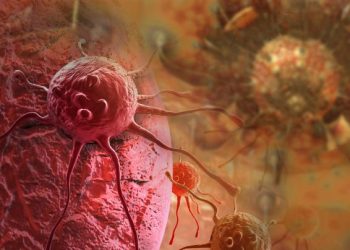The liver is a football-sized organ that filters blood, helps digest food and removes toxins from the body. Liver cancer starts in the liver and may spread to other areas of the body.
Stage 4 liver cancer refers to a single tumor that’s any size, or multiple tumors, that have spread to nearby blood vessels or other organs. There are two substages, 4A and 4B.
Imaging Tests
In stage 4 cancer, tumors grow larger and can start to invade blood vessels. They can also spread from the liver to other parts of the body. To help find out if cancer has reached this stage, doctors use imaging tests to look for abnormal tissue or cancer cells in the liver and other areas. They can also use these tests to see how far the cancer has grown, or how much it has spread.
The most common imaging test used to diagnose a cancer of the liver is an ultrasound scan. This is a painless test that uses sound waves to create images of the liver on a computer screen. These images can show whether a tumor is growing into blood vessels or has spread outside the liver.
Your doctor may also order a computed tomography (CT) scan of the liver. This is a type of X-ray that takes detailed pictures of your liver. A special dye may be injected into your vein before this test to make certain features of the liver appear more clearly.
Magnetic resonance imaging (MRI) is another type of imaging test that uses a large magnet and radio waves to produce very clear pictures of your liver and other organs. Your doctor might inject a contrast agent, which is a special dye that highlights the areas of the liver where tissue is most likely to be.
Unlike the aforementioned CT scans, MRI does not involve the use of radiation and is considered safe for pregnant women and people with implanted devices like pacemakers. It can also provide more detail of the liver’s structure than a CT scan.
A newer type of MRI scanner called dynamic contrast-enhanced MRI allows healthcare providers to distinguish between regenerative and dysplastic liver lesions by tracking the hepatocytes that bind to the hepatic arterial phase contrast agent.
Your doctor may ask for a blood sample to check for a protein called alpha fetoprotein (AFP). This is a marker for cancer, but it can also be raised in people with conditions like cirrhosis who do not have cancer. Your doctor will usually measure AFP levels before and after your treatment to see how well it is working or if the cancer has returned.
Blood Tests
Your healthcare team uses blood tests to check your liver function and to look for signs of cancer. These include measuring the levels of enzymes that help your body get rid of waste products. High levels of these enzymes may indicate hepatitis or cirrhosis, which can lead to cancer. You might also have a test to measure how long it takes your blood to clot. This is called the international normalized ratio (INR).
Ultrasound (sonography): During this test, your healthcare provider bounces high-frequency sound waves off of your liver to make echoes. A computer then turns these echoes into pictures of your liver and other organs. This helps doctors see whether your liver tumor is solid or filled with fluid (like a cyst).
CT scan: This test uses X-rays to create detailed images of the body’s tissues and organs. It can help doctors find and compare liver tumor sizes to the size of your other organs, such as your spleen and kidneys. CT scans can also show whether a tumor has spread to nearby lymph nodes or tissues, which helps doctors plan your treatment.
Magnetic resonance imaging (MRI): This test uses powerful magnets, radiowaves and a computer to make clear images of your organs, bones and blood vessels. It can tell doctors if your tumor has spread to other areas of the liver or body.
Your doctor might also want to do a fine-needle aspiration biopsy or core needle biopsy. These are procedures that remove a small sample of tissue or cells with a thin needle. The sample is then tested in a lab for signs of cancer. Your doctor can also use laparoscopy, a surgical procedure to look at your liver and other organs inside the abdomen.
A blood test to measure the level of a protein in your body called alpha-fetoprotein can help predict how likely it is that you have primary liver cancer (hepatocellular carcinoma). The test might be done after screening tests or diagnostic tests, such as ultrasound or CT scans, show an abnormal result. This test might also be done if you have symptoms of liver cancer, such as jaundice or abdominal swelling.
Biopsy
A biopsy is the only test that can confirm a diagnosis of liver cancer. During this test, a sample of tissue is removed from the liver and examined under a microscope to see if it contains cancer cells. A doctor who specializes in diagnosing diseases (a pathologist) can also use the results of a biopsy to help determine what stage your cancer is and whether it has spread.
Your healthcare provider may order blood tests before the biopsy to check how well your liver is working and if it can make proteins that help your body clot. These blood tests can also help determine how far your cancer has spread.
To perform a biopsy, your healthcare provider will start an IV line in your arm or hand. You might be given sedation to make you relaxed and sleepy for the procedure. Next, your healthcare provider will numb the area over the liver with a local anesthetic. You might also be given a small cut or incision to access the liver. Your healthcare provider will insert the needle into your liver through this incision or one near it. The needle will go in and out of your liver quickly. You will be asked to keep your breath still, as breathing can affect the way the needle moves.
There are several ways to perform a biopsy, including a fine-needle aspiration or core needle biopsy, where the needle is very thin. A surgeon may do a transjugular biopsy, in which a tube is threaded through a large vein in your neck (jugular) and into a large vein in the liver, called the hepatic vein. In some cases, your doctor might do a laparoscopic biopsy. This is done when the tumor is close to a major blood vessel or has spread through the lining of your abdomen (peritoneum).
Your health care team will use the results of the biopsy to decide how to treat your liver cancer. Your team will also talk to you about the prognosis, which is how likely it is that the cancer will return or spread.
Treatment
Your doctor will consider your overall health, the size of the tumor(s) and whether it has spread to nearby lymph nodes or other organs to determine which treatment option is best for you. The treatment options for stage 4 liver cancer include surgery, chemotherapy and targeted therapy. Medications to help manage symptoms are also used.
The goal of cancer treatment is to cure the cancer and improve your quality of life. Your doctor may refer you to a specialist, such as an oncologist, to receive care for your liver cancer.
When cancer spreads to the liver, it can cause complications such as severe pain in your abdomen (abdomen), fever and a general feeling of being unwell. Other symptoms include yellowing of the skin and eyes (jaundice) and a build-up of fluid in your abdomen (ascites). These complications can make it difficult to breathe, eat and sleep well.
People with stage 4 liver cancer are more likely to have symptoms than those with earlier stages of the disease. They may also have a greater chance of having the cancer spread to other parts of their body, such as their lungs. Depending on how far the cancer has spread, you might be able to have a liver transplant.
Liver cancer is a serious illness, but advancements in treatment have improved survival rates. Your doctor can give you a five-year survival rate for your type of cancer and stage. These rates are based on statistics from many patients with the same type and stage of cancer over time. They don’t take into account individual factors, such as your age and health status.
You might be able to get medications that help manage your symptoms or slow the growth of your tumor(s). These medicines are called systemic treatments because they work throughout your body. They might include Tecentriq (atezolizumab), which increases your immune system’s ability to fight the cancer, and Lenvima (lenvatinib), Nexavar (sorafenib) or Cabometyx (cabozantinib). These are a type of targeted therapy called kinase inhibitors. They are given by vein (intravenously) or orally on a schedule that varies between two and four weeks.









